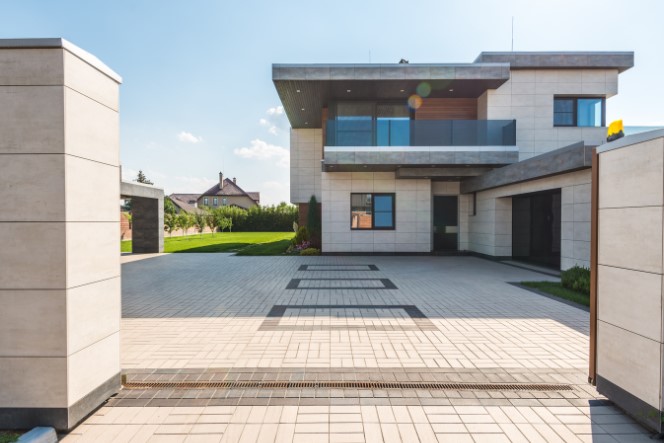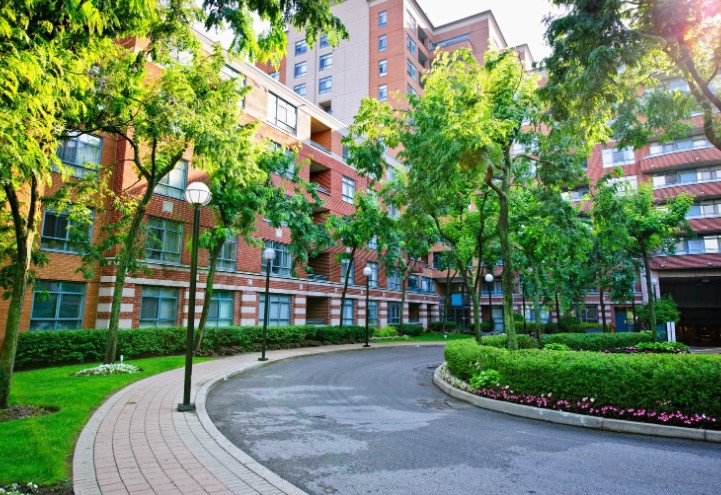- What Factors Influence the Cost of a New Driveway in the UK?
- How Much Does A New Driveway Cost? - Each Type (2025 UK Pricing Guide)
- What Are the Pros and Cons of Each Driveway Type?
- What is the Cheapest Option for a Driveway in the UK?
- Do I Need Planning Permission for a New Driveway in the UK?
- Can I Save Money by Installing a Driveway Myself?
- Hidden Costs and Long-term Expenses
- Real Cost Examples: What Did I Pay for My Driveway?
- Conclusion: Is a New Driveway Worth the Cost in 2025?
- FAQs – Your Driveway Cost Questions Answered
Upgrading your driveway can completely transform the look of your home, but it’s one of those projects where costs can vary massively.
When I began researching how much does a new driveway cost in the UK, I quickly realised that the price tag depends on a whole mix of factors — from the type of surface you choose to the size of the space, and even where you live.
In this guide, I’ll break everything down, share real numbers, and even include my own experience to help you make a more informed decision.
What Factors Influence the Cost of a New Driveway in the UK?
Before you even pick a material or call a contractor, it’s important to understand what drives the cost. Here’s what I discovered:
Size and Shape of the Driveway
The important factor is the size of the driveway. A simple rectangular shape is usually cheaper than something curved or awkwardly shaped.
The bigger the area, the more materials and labour required.
What Type of Material Used?
There are plenty of options out there, and each comes with a different price point and maintenance level.
Tarmac vs. Block Paving vs. Resin vs. Gravel
| Material | Average Cost per m² (UK) | Lifespan | Maintenance Level |
| Gravel | £30 – £60 | 10–15 years | Low |
| Tarmac | £45 – £70 | 15–20 years | Medium |
| Block Paving | £60 – £120 | 20+ years | High |
| Resin Bound | £70 – £130 | 15–20 years | Low–Medium |
| Concrete | £65 – £110 | 25+ years | Low |
You can read more about the resin option in our in-depth blog on resin-bound driveway costs.
Labour and Installation Costs
Labour charges vary by region. For example, London-based installations are often 15–25% more expensive than the North or Midlands.
Location and Accessibility
If your home is hard to access or needs significant preparation, expect the cost to rise.
Additional Features (Edging, Drainage, Kerbs)
Extras like drainage channels, edging stones, and decorative kerbs can add anywhere from £200 to £1,000+.

How Much Does A New Driveway Cost? – Each Type (2025 UK Pricing Guide)
Tarmac Driveway Cost per m²
Expect to pay between £45 and £70 per m². It’s fast to lay, durable, making it a cost-effective choice for big areas.
Resin Bound Driveway Price Range
One of the more stylish choices, resin bound driveways typically range from £70 to £130 per m². They’re permeable, low-maintenance, and great for kerb appeal.
Dive deeper in our dedicated blog: How much does a resin bound driveway cost?
Block Paving Driveway Cost
Block paving sits between £60 and £120 per m², depending on the stone type and pattern complexity. It’s beautiful, but it does need regular weeding and upkeep.
Concrete and Gravel Driveway Prices
- Concrete: £65 to £110 per m², very long-lasting but cracks can be an issue.
- Gravel: The cheapest option at £30 to £60 per m², but it can scatter and requires occasional top-ups.
How Much Does It Cost to Pour a 20×20 Driveway?
For a 20×20 ft (approximately 37 m²) concrete driveway:
| Item | Approximate Cost |
| Concrete Material | £2,200 – £2,700 |
| Labour | £800 – £1,200 |
| Total | £3,000 – £3,900 |
If you’re going for gravel, this same area could cost as little as £1,200.

What Are the Pros and Cons of Each Driveway Type?
Here’s a quick breakdown:
- Gravel: Pros – Cheapest, quick install. Cons – Can scatter, not suitable for sloped drives.
- Tarmac: Pros – Durable, cost-effective. Cons – Not as visually attractive.
- Block Paving: Pros – Stylish, wide range of design. Cons – Weeds, higher maintenance.
- Resin: Pros – Modern look, low maintenance. Cons – Expensive.
- Concrete: Pros – Long-lasting, low upkeep. Cons – Can crack over time.
What is the Cheapest Option for a Driveway in the UK?
Gravel takes the crown here, hands down. At £30–£60 per m², it’s the most budget-friendly choice.
But remember:
- Cheaper materials may need more frequent maintenance.
- Resin and tarmac, while more expensive up front, often have lower lifetime costs.
Do I Need Planning Permission for a New Driveway in the UK?
You usually don’t need planning permission if:
- The surface is permeable (like gravel or resin).
- It doesn’t drain onto the street.
However, if you’re covering more than 5m² with a non-permeable material, or you’re in a conservation area, you might need permission. Anytime it is worth checking with your local council.
Can I Save Money by Installing a Driveway Myself?
I seriously considered the DIY route before going professional. Here’s what I learned:
DIY vs Professional Driveway Installation
| Method | Pros | Cons |
| DIY | Saves labour cost, satisfaction | Time-consuming, risk of errors |
| Professional | Quick, high quality finish | More expensive upfront |
Unless you’re highly experienced or it’s a simple gravel drive, I’d recommend leaving it to the pros.

Hidden Costs and Long-term Expenses
Here’s what can creep up on you later:
- Resurfacing: £300 – £1,000 depending on surface
- Cleaning & sealing: Every 1–2 years, costing £100–£300
- Repairs: Cracks, potholes, and block shifting
Budget at least £100–£200 per year for ongoing maintenance.
Real Cost Examples: What Did I Pay for My Driveway?
When I redid my driveway last year (block paving), the final cost was just over £6,500 for a two-car space.
Here’s the breakdown:
- Site prep & excavation: £1,200
- Materials: £3,500
- Labour: £1,800
If you’re interested in exact figures for a two-car setup, check out our full article on how much a 2-car driveway costs.
Conclusion: Is a New Driveway Worth the Cost in 2025?
After going through the numbers, materials, and maintenance, I can confidently say that a new driveway is worth it — not just for the aesthetics but for the added property value and practicality.
Whether you go budget-friendly with gravel or invest in a sleek resin finish, make sure the driveway suits your needs, budget, and lifestyle.
And don’t forget — the long-term benefits often outweigh the upfront cost.
FAQs – Your Driveway Cost Questions Answered
1. How long does a new driveway take to install?
Anywhere from 2 to 10 days, depending on materials and weather.
2. What’s the cheapest option for a driveway in the UK?
Gravel – both for materials and installation.
3. How much does it cost to pour a 20×20 driveway?
For a concrete one: £3,000 – £3,900, including labour.
4. Does a new driveway add value to property?
Absolutely. A well-installed driveway can boost your home’s value by 5% to 10% and makes a great first impression for buyers.


0 Comments